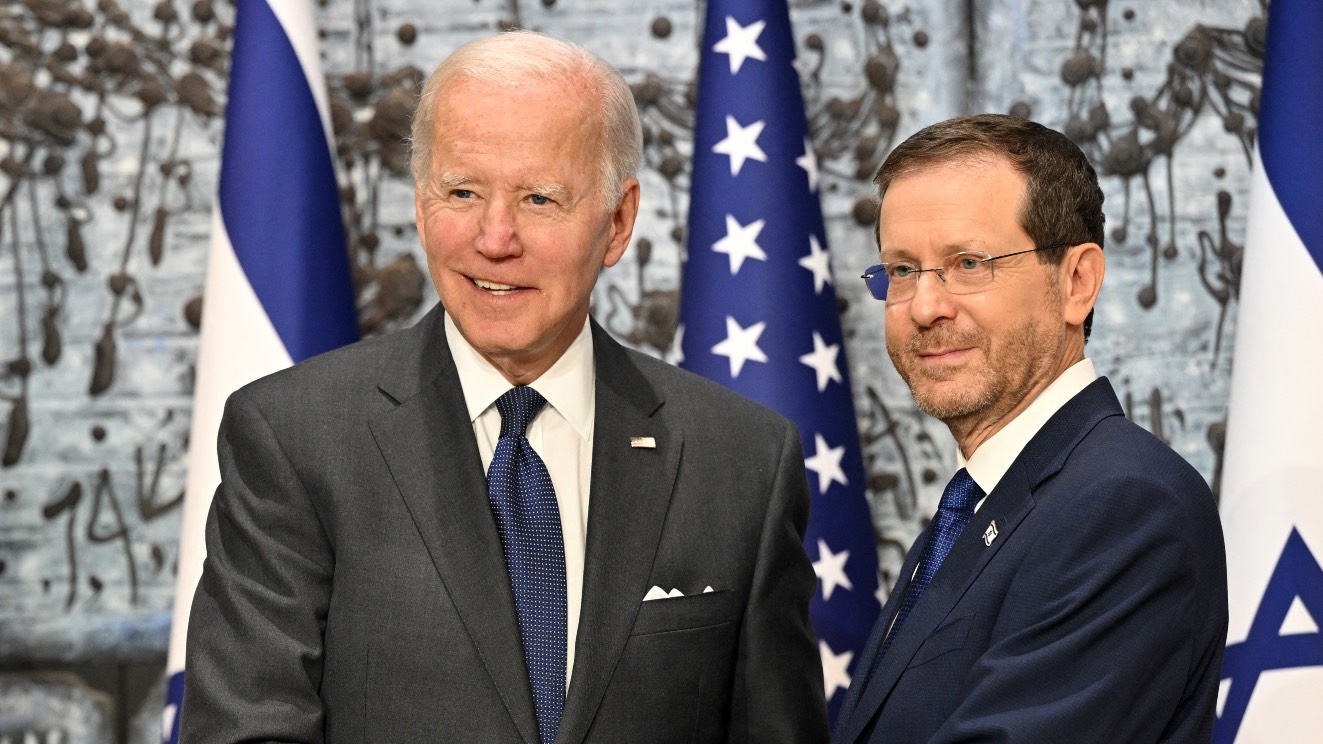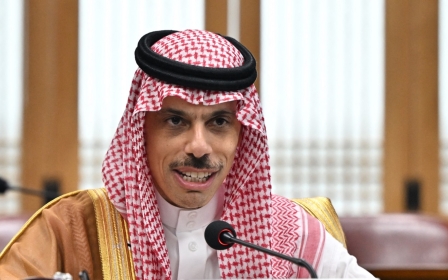Two-state solution highlighted in Biden’s national security strategy

The White House has listed the two-state solution in the Israel-Palestine conflict as one of its priorities in the Biden-Harris administration’s newly unveiled 2022 national security strategy.
The document released Wednesday states the US will continue to promote a viable two-state solution that "preserves Israel's future as a Jewish and democratic state while meeting Palestinian aspirations for a secure and viable state of their own".
Continued advocacy for a two-state solution comes as part of a plan to “support de-escalation and integration” in the Middle East.
While Israel's Prime Minister Yair Lapid seemed to back the two-state solution at the UN in September, Israel’s population remains largely opposed to such a move, with a recent poll finding only 32 percent of Israelis demonstrating support.
“An agreement with the Palestinians, based on two states for two peoples, is the right thing for Israel’s security, for Israel’s economy, and for the future of our children,” Lapid told delegates in a speech to the 77th United Nations General Assembly.
Stay informed with MEE's newsletters
Sign up to get the latest alerts, insights and analysis, starting with Turkey Unpacked
The national security strategy includes a commitment to facilitate Israel’s ties to its neighbours and other Arab states via the Abraham Accords that were signed under President Donald Trump. The joint normalisation deals, mediated by the US, currently include Morocco, Bahrain and the UAE.
The strategy reiterates President Biden's statement in the occupied West Bank in July 2022: “Two States along the 1967 lines, with mutually agreed swaps, remain the best way to achieve equal measure of security, prosperity, freedom, and democracy for Palestinians as well as Israelis.”
The document does not provide a roadmap for negotiations for the two-state solution and there are currently no efforts in motion.
Tensions between Israel and Palestine have flared recently, with Israeli forces killing several Palestinians in recent weeks and Palestinian fighters calling for “days of rage” in response to a continued Israeli lockdown of the Shuafat refugee camp in Jerusalem.
Deterring Iran
The national security strategy highlighted a US plan to pursue “diplomacy to ensure that Iran can never acquire a nuclear weapon”, but added that the US will remain “prepared to use other means” in case diplomacy fails.
"We will continue to work with allies and partners to enhance their capabilities to deter and counter Iran’s destabilizing activities."
The document emphasised that the US administration will not shy away from backing the protests in Iran.
“We will always stand with the Iranian people striving for the basic rights and dignity long denied them by the regime in Tehran,” Biden said.
The nuclear deal has taken a backseat as civil unrest continues in Iran, as government forces suppress protests sparked by the death of Mahsa Amini in police custody in September. The US State Department on Wednesday said the nuclear deal is "not our focus right now", instead concentrating on supporting protesters in the Islamic Republic.
Competing with China, constraining Russia
Biden identified a threefold strategy to “out-compete” China, which the strategy regards as a major global economic force as well as a competitor with both the intent and means to “reshape the international order”.
The plan regarding China centres investment in “the foundations of our strength at home”, alignment of efforts with “our network of allies and partners” and responsible competition with the People's Republic of China.
The strategy also reiterated a US interest in maintaining stability across the Taiwan Strait, a point of contention with China, doubling down on its opposition to Taiwan's independence.
On Russia, the national security strategy includes a pledge to stand with Ukraine in its war against Russia, adding it will see to its economic recovery and encourage its integration with the European Union.
Biden pegged Russia’s foreign policy as an “imperialist” force bent on overturning the international order. The strategy promises to “defend every inch of NATO territory” and prevent Russia from achieving its objectives through the use or threat of nuclear weapons.
In September, the Department of State announced a $600m drawdown of US arms and equipment to Ukraine, contributing to a total $15.8bn in military assistance to the country since the beginning of the Biden-Harris administration.
Middle East Eye delivers independent and unrivalled coverage and analysis of the Middle East, North Africa and beyond. To learn more about republishing this content and the associated fees, please fill out this form. More about MEE can be found here.




